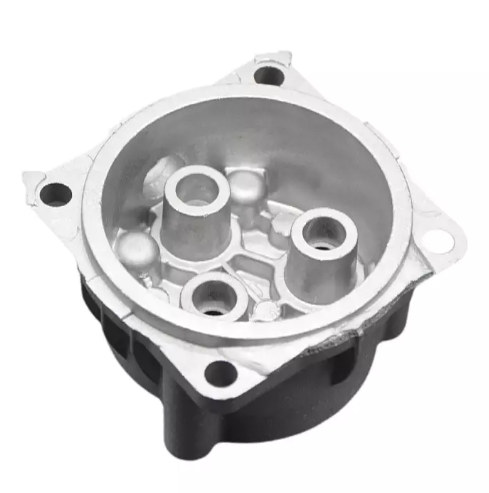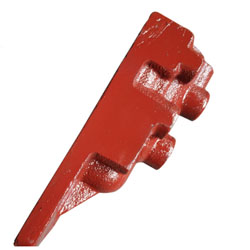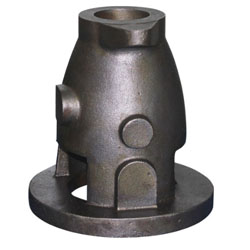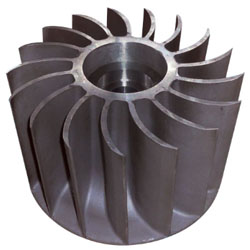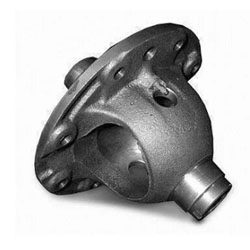Automotive Casting
- Leehwa Casting was established in 1996, it produces Investment Casting.
- It is one of the most professional investment Casting Manufacturers and Suppliers.
- Leehwa Casting provides 5 years casting Warranty.
- Leehwa Casting is the top sand casting manufacturer in China.
- Leehwa Casting is the best sand casting Manufacturer for investment casting.
Your Premier
Automotive Casting Manufacturers and Suppliers
Material
Stainless steel Alloy steel casting Carbon steel casting
Bronze and Brass casting Aluminum casting
Machining
Drilling, Reaming and tapping
CNC Turning machining CNC Milling machining
Wire EDM
Heat treatment
Annealing Solution
Normalizing Tempering Quenching
Induction hardening Hardening and tempering
Surface treatment
Manual polishing Electro-polishing
Electro-plating Power coating Tumbling
For more than 30 years, Leehwa Casting only do one thing, it produce sand casting products: Investment Casting. It is one of the most professional suppliers and manufacturers in Shandong ,China. Leehwa Casting has the advanced technology and machinery to make sand casting ranks best in quality. Leehwa Casting ranks on top in Chinese sand casting manufacturers. We help many customers to make their sand castings. and finished more than 10000 tons sand castings in 2019. We have a wide range applications on the sand casting products. Contact us now for quotation.
Send us your requirements, Let Huifeng support you.
Automotive Casting: The Complete Guide for Importers and Buyers
Automotive casting plays a crucial role in the production of various components used in vehicles.
Whether it’s engine blocks, cylinder heads, transmission cases, or suspension parts, the quality and precision of automotive castings directly impact the performance, reliability, and safety of automobiles.
This comprehensive buying guide aims to provide importers and buyers with essential information to make informed decisions when procuring automotive castings.
- Understanding Automotive Casting: 1.1 Overview of Automotive Casting: Provide an introduction to automotive casting, highlighting its significance in the automotive industry and the types of components produced. 1.2 Casting Methods: Explore different casting methods used in the automotive sector, including sand casting, investment casting, die casting, and permanent mold casting, along with their advantages and applications.
- Material Selection for Automotive Castings: 2.1 Ferrous Metals: Discuss the commonly used ferrous metals in automotive casting, such as cast iron and steel, highlighting their properties, strengths, and applications. 2.2 Non-Ferrous Metals: Explore non-ferrous metals used in automotive casting, including aluminum, magnesium, and copper alloys, emphasizing their lightweight properties and applications.
- Quality Assurance in Automotive Casting: 3.1 Supplier Qualification: Discuss the importance of selecting reputable suppliers who adhere to industry standards, possess certifications, and have a proven track record of delivering high-quality automotive castings. 3.2 Quality Control Measures: Highlight the essential quality control measures used in automotive casting, including material testing, dimensional accuracy inspection, non-destructive testing, and documentation. 3.3 Certifications and Standards: Emphasize the significance of certifications like ISO/TS 16949, which ensures quality management in the automotive industry, and the adherence to relevant standards such as ASTM and SAE.
- Choosing the Right Automotive Casting Supplier: 4.1 Supplier Evaluation: Provide a step-by-step guide for evaluating potential automotive casting suppliers, including assessing their manufacturing capabilities, quality control processes, production capacity, and track record. 4.2 Technical Expertise: Consider the supplier’s technical expertise in automotive casting, including their engineering support, design capabilities, and ability to offer value-added services. 4.3 Supply Chain Management: Evaluate the supplier’s supply chain management capabilities, including their ability to handle logistics, ensure timely delivery, and manage inventory.
- Cost Considerations: 5.1 Pricing Structure: Discuss the factors that contribute to the pricing structure of automotive castings, including material costs, tooling expenses, complexity of the component, and order volume. 5.2 Total Cost of Ownership: Encourage buyers to consider the total cost of ownership, which includes factors like quality, reliability, and the supplier’s responsiveness, in addition to the initial purchase price.
- Collaborative Design and Engineering: 6.1 Design for Manufacturability: Highlight the importance of collaborative design and engineering between buyers and suppliers to optimize the manufacturability of automotive castings, resulting in improved quality, reduced costs, and shorter lead times. 6.2 Prototyping and Validation: Discuss the significance of prototyping and validation processes in automotive casting, allowing for design iterations, performance testing, and verification before full-scale production.
- Environmental Considerations: 7.1 Sustainability Practices: Encourage buyers to prioritize suppliers who adopt sustainable practices in their automotive casting processes, including energy-efficient technologies, waste management strategies, and recycling initiatives. 7.2 Regulatory Compliance: Highlight the importance of suppliers adhering to environmental regulations and industry standards concerning emissions, waste disposal, and hazardous materials.
- Emerging Trends in Automotive Casting: 8.1 Lightweight Materials: Discuss the growing trend of utilizing lightweight materials like aluminum and magnesium alloys in automotive castings to enhance fuel efficiency and reduce emissions. 8.2 Advanced Manufacturing Technologies in Automotive Casting: Explore emerging technologies such as additive manufacturing (3D printing), which offers new possibilities for complex geometries and rapid prototyping in automotive casting. 8.3 Simulation and Virtual Prototyping: Discuss the use of simulation software and virtual prototyping tools in automotive casting, enabling engineers to optimize designs, predict casting defects, and improve overall casting performance.
- Case Studies: 9.1 Engine Components: Provide examples of automotive casting applications in engine components, such as cylinder heads, engine blocks, and crankcases, highlighting the importance of precision, material selection, and quality control. 9.2 Suspension and Chassis Parts: Discuss the role of automotive casting in producing suspension components, steering knuckles, and other chassis parts, focusing on durability, strength, and weight optimization. 9.3 Transmission and Drivetrain Components: Explore the significance of automotive casting in the production of transmission cases, differential housings, and other drivetrain components, emphasizing the need for dimensional accuracy, material properties, and heat treatment. 9.4 Safety Components: Highlight the importance of automotive casting in safety-related components, such as brake calipers, wheel hubs, and structural reinforcements, emphasizing the criticality of quality, reliability, and adherence to industry standards.
- After-Sales Support and Services: 10.1 Warranty and Defect Resolution: Discuss the importance of understanding the supplier’s warranty terms and conditions and their responsiveness in addressing any defects or issues that may arise post-purchase. 10.2 Spare Parts Availability: Emphasize the need for suppliers to provide timely availability of spare parts for automotive castings to minimize downtime and ensure uninterrupted operations. 10.3 Technical Support and Training: Evaluate the supplier’s technical support capabilities, including training programs for buyers’ engineers and operators to enhance their understanding of automotive casting processes and troubleshooting.
Conclusion:
As automotive casting continues to play a vital role in the production of critical components for vehicles, importers and buyers must navigate the purchasing process with knowledge and diligence.
This complete buying guide provides a comprehensive understanding of automotive casting, covering aspects such as material selection, quality assurance, supplier evaluation, cost considerations, collaborative design, environmental considerations, emerging trends, and case studies. By leveraging this guide, importers and buyers can make informed decisions, establish strong partnerships with reliable suppliers, and ensure the procurement of high-quality automotive castings that meet their specific requirements.

